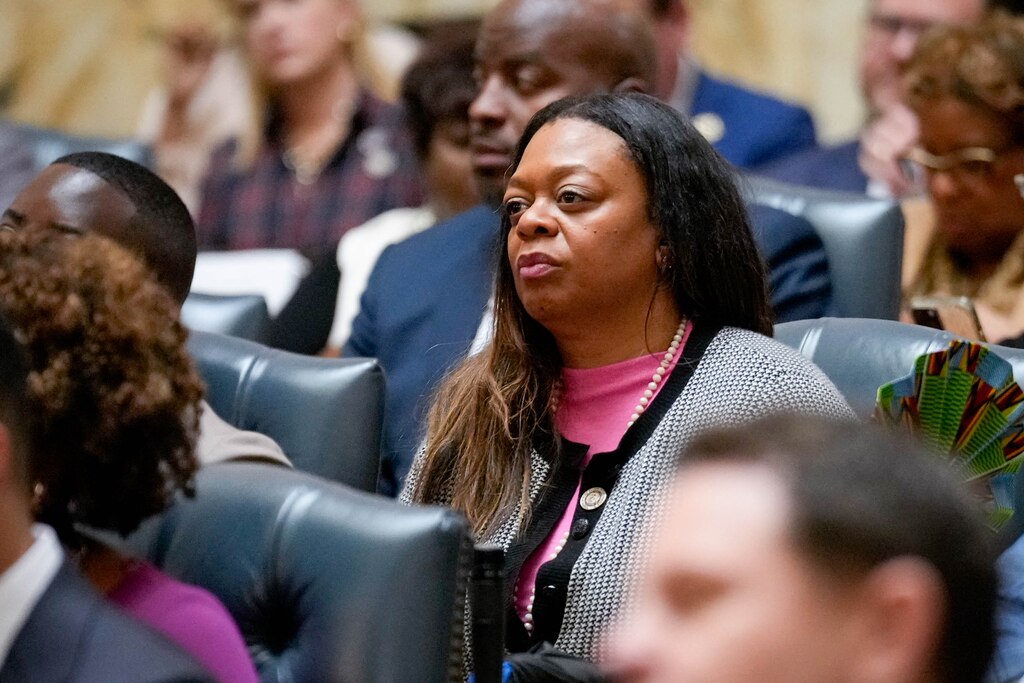Federal law requires states to have a mechanism in place to suspend driver’s licenses over unpaid child support.
But researchers, workforce development professionals and advocates have long criticized the practice as ineffective and counterproductive. That’s because many people need to drive to hold down a job, earn a living and pay child support in the first place.
On Tuesday, Gov. Wes Moore signed a bill that automatically exempts people from having their driver’s license suspended over unpaid child support if they make at or below 250% of the federal poverty guidelines. The number is $39,125 per year in 2025, according to the U.S. Department of Health and Human Services.
“It’s an important bill for low-income families and all Marylanders,” said Daniel Hatcher, a law professor at the University of Baltimore who’s written about issues related to poverty including child support for decades and helped out with the language of the legislation.
The Baltimore Banner thanks its sponsors. Become one.
Hatcher also teaches the Civil Advocacy Clinic, where students represent clients who are low income.
“If you consider the current practices right now, the license suspension program is blocking the ability to work of low-income obligors,” he said. “It’s not increasing child support payments. It’s decreasing child support payments.”
In 2023, Maryland suspended about 20,500 driver’s licenses over unpaid child support. From 2015 to 2020, the NAACP Maryland State Conference reported that Black parents experienced 71% of these suspensions.
The Abell Foundation in 2019 released a report that found that 57% of noncustodial parents in Baltimore were employed. But 47% made minimum wage or less.
Under the current law, the Maryland Child Support Administration can notify the Maryland Motor Vehicle Administration if people with a regular driver’s license are 60 days or more behind on child support, or those with a commercial driver’s license find themselves at least 120 days in arrears.
The Baltimore Banner thanks its sponsors. Become one.
The legislation will extend that period for people with regular driver’s licenses to 120 days.
The court will be required to send documentation including the latest child support order to the state so it has income information.
And the exemption from a driver’s license suspension will not apply if a judge determines that a parent is “voluntarily impoverished.”
“Everybody wants to live in a state that is safe and has a thriving economy where everybody is gainfully employed,” said Kam Bridges, senior policy advocate at the Job Opportunities Task Force, a nonprofit organization in Baltimore that helps lower-wage workers move into higher-paying jobs.
Christopher Dews, assistant vice president at Cornerstone Government Affairs, a lobbying firm, previously worked as training coordinator at Civic Works and senior policy advocate at the Job Opportunities Task Force and pushed for the legislation since 2021.
The Baltimore Banner thanks its sponsors. Become one.
“It’s a quiet bill,” Dews said, “but it’s a huge piece of legislation.”
He said many people “get this conversation twisted.”
“This is not about letting people off,” he said. “This is about ensuring that people have the means to secure employment.”
The primary sponsor of the bill, Del. Karen Toles, a Democrat from Prince George’s County, said there are other enforcement mechanisms and noted that driver’s license suspensions also make it difficult for parents to spend time with their children.
Toles is second vice chair of the Legislative Black Caucus of Maryland, which made the bill one of its priorities.
The Baltimore Banner thanks its sponsors. Become one.
 Del. Karen Toles, a Democrat from Prince George's County, sponsored a bill that exempt some people from experiencing a driver's license suspension over unpaid child support.
Del. Karen Toles, a Democrat from Prince George's County, sponsored a bill that exempt some people from experiencing a driver's license suspension over unpaid child support.
Amee Vora, advocacy director for family law at Maryland Legal Aid, the state’s largest provider of free civil legal services, said a lot of clients that the nonprofit organization firm serves will benefit.
If the measure is properly implemented, Vora said, people making at or below 250% of the federal poverty guidelines will be weeded out of the automated system for driver’s license suspensions.
But Vora described the situation as a bit of a wait-and-see.
The law firm has previously raised concerns about the state routinely suspending driver’s licenses without due process in circumstances in which that’s not legally allowed.
“I’m thrilled we were able to get it passed this year. I’m just eager to see how this implemented,” Vora said. “I don’t think we’re out of the woods yet.”




Comments
Welcome to The Banner's subscriber-only commenting community. Please review our community guidelines.